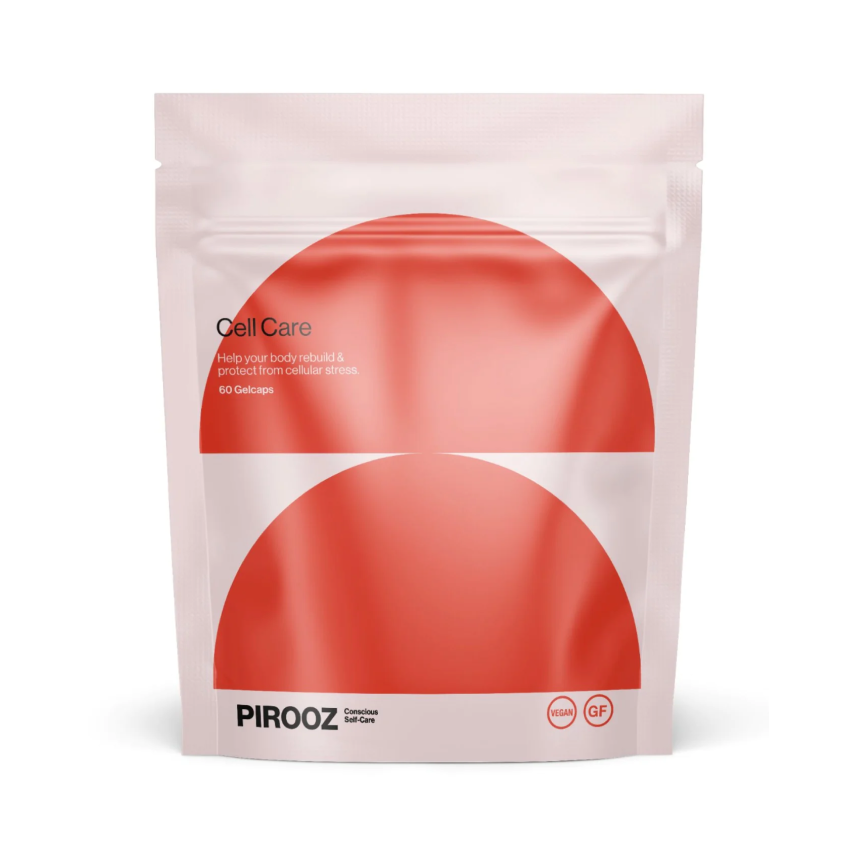The Appeal of Multivitamins
Multivitamins appeal to many individuals due to their convenience and comprehensive nutrient profile. These supplements are designed to provide a broad spectrum of vitamins and minerals in balanced doses, potentially bridging nutritional gaps for those with inconsistent dietary habits or inadequate nutrient intake. The ease of taking a single pill daily simplifies nutritional support, making it accessible for individuals seeking a straightforward approach to maintaining overall health (Bailey et al., 2013).Limitations of Multivitamins
Despite their convenience, multivitamins may have limitations, particularly in providing adequate doses of specific nutrients required for optimal health. The formulation of multivitamins involves balancing various nutrients, which can lead to lower concentrations of individual vitamins or minerals compared to targeted supplements. This factor is crucial for individuals with specific deficiencies or health conditions requiring higher nutrient levels, potentially necessitating additional supplementation beyond what multivitamins provide (Trumbo et al., 2001).Individual Supplements: Targeted Nutrition
Individual supplements offer precise doses of specific nutrients tailored to address distinct health needs or deficiencies. For instance, vitamin D supplements, supporting bone health and immune function, are essential for individuals with limited sun exposure (Harris & Macpherson, 2006). Omega-3 fatty acids are another example, known for their best cardiovascular support and benefits. These supplements are formulated to optimize nutrient bioavailability, ensuring that the body absorbs and utilizes nutrients effectively for targeted health benefits (Trumbo et al., 2001).Efficacy and Bioavailability
The effectiveness of supplements hinges on factors such as nutrient form, dosage, and bioavailability (Bailey et al., 2013; Harris & Macpherson, 2006). Individual supplements are advantageous because they deliver concentrated amounts of nutrients directly absorbed by the body. In contrast, multivitamins may contain nutrients competing for absorption, potentially reducing the bioavailability of specific vitamins or minerals critical for health maintenance (Bailey et al., 2013).Personalized Approach to Nutrition
Healthcare professionals emphasize a personalized approach to supplementation based on individual health assessments, dietary habits, and specific nutrient requirements. Personalized nutrition plans may include diagnostic tests or dietary analysis to identify deficiencies, guiding the selection of supplements tailored to meet individual health goals effectively. This approach ensures that nutrient intake is optimized without the risk of unnecessary excess or deficiency often associated with multivitamin use (Trumbo et al., 2001).Cost Considerations
Multivitamins are generally more cost-effective than purchasing multiple individual supplements separately. However, for individuals needing targeted nutrient support or higher doses, the cost-effectiveness of multivitamins may be outweighed by the benefits of tailored supplementation. It is essential to consider both short-term costs and potential long-term health advantages when deciding between multivitamins and individual supplements to maximize nutritional benefits within budget constraints (Bailey et al., 2013). Safety and Quality Ensuring the safety and quality of supplements is paramount. Regulatory agencies like the FDA provide supplement manufacturing and labelling guidelines to safeguard consumer health. Selecting supplements from reputable manufacturers, adhering to these guidelines, and undergoing third-party testing ensures product safety, purity, and efficacy, offering consumers confidence in their supplement choices (Trumbo et al., 2001).Convenience and Compliance
One significant advantage of multivitamins is their convenience, which can lead to higher compliance rates. For individuals with busy lifestyles or those who find it challenging to remember multiple supplements, a single multivitamin can simplify their routine and ensure they receive a wide range of nutrients (Bailey et al., 2013).Addressing Specific Deficiencies
Individual supplements are particularly beneficial for addressing specific nutrient deficiencies that a multivitamin may not adequately cover. For example, vegetarians and vegans might require additional vitamin B12 supplementation, typically found in animal products (Rizzo et al., 2016). Similarly, individuals with iron deficiency anaemia may need higher doses of iron than what is typically included in a multivitamin (Trumbo et al., 2001).Potential for Overlapping Nutrients
While multivitamins offer a broad range of nutrients, there is a potential risk of overlapping nutrients when combined with other supplements or fortified foods. This overlap can lead to excessive intake of specific vitamins or minerals, posing health risks, particularly with fat-soluble vitamins like A, D, E, and K. Careful consideration and possibly consulting with a healthcare provider can help avoid such issues (Bailey et al., 2013).Synergistic Effects
Certain nutrients work synergistically to enhance absorption and efficacy, and multivitamins are formulated to optimize these interactions. For example, vitamin D enhances calcium absorption, and vitamin C can enhance iron absorption. When taking a well-formulated multivitamin, these synergistic effects can benefit overall health (Trumbo et al., 2001).Risk of Deficiency with Individual Supplements
Relying solely on individual supplements without consideration of the overall nutrient balance can lead to deficiencies in other essential vitamins and minerals. For instance, focusing on high doses of vitamin C for its best antioxidant supplement properties requires adequate intake of other nutrients like zinc or magnesium to provide comprehensive health benefits (Bailey et al., 2013).The Role of Diet and Lifestyle
Whether one chooses multivitamins or individual supplements, it is crucial to remember that supplements are intended to complement, not replace, a balanced diet and healthy lifestyle. Whole foods provide a complex matrix of nutrients, fibre, and phytonutrients that work together to support health in ways that supplements alone cannot replicate (Bailey et al., 2013).Integrating Multivitamins and Individual Supplements
Sometimes, combining multivitamins and individual supplements may be the best approach to meet specific health needs while ensuring comprehensive nutrient coverage (Bailey et al., 2013). For example, an individual might take a daily multivitamin to cover general nutritional needs and supplement with additional vitamin D or omega-3 fatty acids based on specific health concerns or deficiencies (Harris & Macpherson, 2006).Monitoring and Adjusting Supplementation
Regular monitoring of nutrient levels through blood tests and consultations with healthcare providers can help ensure that supplementation strategies remain effective and safe (Bailey et al., 2013). Adjusting dosages or types of supplements based on changing health needs, lifestyle factors, and dietary intake is crucial for maintaining optimal nutrient balance and preventing potential nutrient interactions or imbalances (Trumbo et al., 2001).The Role of Genetics and Epigenetics
Emerging research in genetics and epigenetics highlights the importance of personalized nutrition, as individual genetic variations can influence nutrient metabolism, absorption, and requirements. Understanding one's genetic predispositions can inform more precise and effective supplementation strategies, potentially leading to better health outcomes and reduced risk of chronic diseases (Bailey et al., 2013).Environmental and Lifestyle Factors
Environmental and lifestyle factors, such as pollution exposure, stress levels, and physical activity, can significantly impact nutrient needs and overall health. For example, individuals exposed to higher environmental toxins may benefit from antioxidants like vitamins C and E to combat oxidative stress. Similarly, those with high-stress lifestyles may require additional B vitamins and magnesium to support stress management and neurological health (Harris & Macpherson, 2006).Final Thought -
In conclusion, the choice between multivitamins and individual supplements should be guided by personal health needs, lifestyle factors, and the advice of healthcare professionals. Both approaches have their merits, with multivitamins offering convenience and comprehensive nutrient coverage, while individual supplements provide targeted solutions for specific deficiencies and health concerns. By understanding the benefits and limitations of each approach and integrating them with personalized nutrition plans, individuals can optimize their nutrient intake, support overall health, and achieve long-term well-being. Regular monitoring, genetic considerations, environmental factors, and ethical practices further enhance the effectiveness and sustainability of supplementation strategies, promoting a holistic approach to health and nutrition. In the competitive market of dietary supplements, PIROOZ Cell Care supplements stands out as the ultimate all-in-one multivitamin, designed to offer comprehensive coverage for all your nutritional and cellular system needs. This supplement addresses the body's essential biological requirements, providing an unparalleled combination of potency and breadth. PIROOZ Cell Care includes ingredients specifically chosen to support mitochondrial function and overall cell health. By optimizing mitochondrial performance, this supplement helps ensure that cells can function efficiently, which is crucial for maintaining energy levels, cognitive function, and overall vitality. PIROOZ Cell Care's broad-spectrum formulation includes essential vitamins and minerals, antioxidants, and other bioactive compounds. This ensures that all the body's nutritional needs are met, promoting optimal metabolic function, immune support, and overall health. PIROOZ Cell Care is formulated to be:- 6000x Stronger than Vitamin C
- 110x Stronger than Vitamin E
- 560x Stronger than Green Tea Catechins
- 800x Stronger than CoQ10
- 3000x Stronger than Resveratrol












